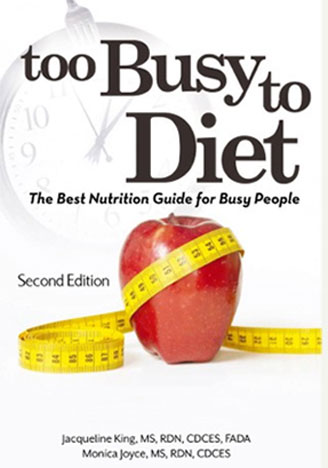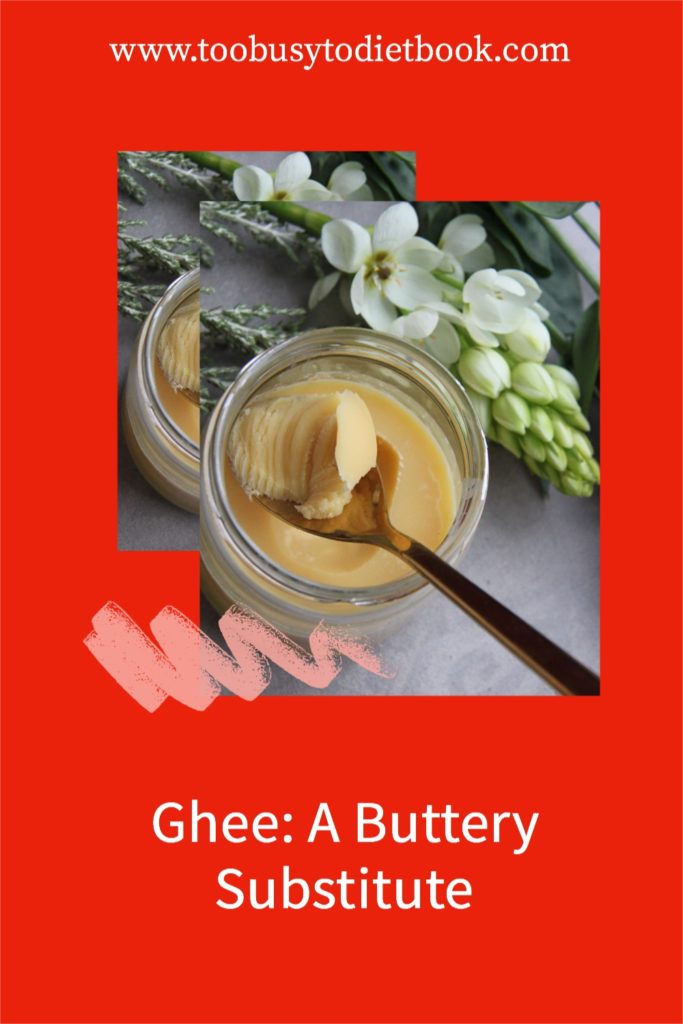Ghee: A Buttery Substitute
in The Too Busy to Diet Blog on November 30, 2021
Ghee has been used throughout India and Pakistan for at least 5000 years. It became popular when people saw that it prevented butter from spoilage in warm temperatures.
The word ghee means” sprinkled” and has been used in Ayurveda medicine to enhance a healthy lifestyle. Ayurveda utilizes yoga, exercise, meditation, massage, and diet change.
GEE! A butter product that has been around for ages that many Americans have never used. It is becoming more popular as home cooks experiment with improving the taste of their food.
Ghee is a clarified butter that has a higher concentration of fat than butter because water and milk solids have been removed. This allows ghee to be stored at room temperature for a number of weeks. When it is subjected to colder temperatures, it can become solid.
Ghee is made by heating butter to allow the separation of the liquid and milk solids to settle to the bottom of a pan. It turns from a golden to dark brown.
Ghee and butter are very similar in composition and their cooking properties.
When a tablespoon of butter is compared to ghee, butter has 23 calories,
3 grams of fat and 2 grams of saturated fat less than ghee. Ghee has 1 less gram monosaturated fat more than butter with the remainder of its nutritional composition being similar.
Because their differences are very small, using one over the other makes little difference in your health. Ghee can be a better choice for those with allergies to the milk sugar lactose and the milk protein casein because it is lacking both and butter has small amounts of each.
When comparing ghee to butter in cooking, ghee and butter are rich in saturated fats allowing them to be exposed to higher temperatures without being damaged.
Ghee has a higher smoke point than butter where fats volatility becomes higher and begins to smoke so that it can tolerate higher temperatures.
Another advantage of ghee is that it produces less of the toxic compound acrylamide than vegetable and seed oils. Continued research is being conducted to establish the risks of cancer with the production of acrylamide in cooking.
Ghee may have potentially adverse effects for those with high LDL (bad) cholesterol levels who tend to react more in response to high saturated fat.
Dr. Rosalind Colemann, a professor at the University of North Carolina Gillings School of Global Public Health has stated that there is no evidence presently that ghee is superior to butter in its health benefits. Coleman has stated that ghee does not include milk solids making it easier to digest for lactose intolerant individuals than other fats. She does not feel that ghee overall is superior to butter.
Buy the Too Busy to Diet book
Get your copy of the definitive diet reference guide and healthy eating book today. Stop reading those misleading fad diet books and read an easy to follow book on how to lose weight and keep it off from actual Registered Dietitians.

Recent Posts
- Barbeque Turkey Meatloaf
- Pescado a la Veracruzana
- Juicy Pork Chops
- Rotasserie Chicken Casserole
- Grilled Salmon & Blueberry Salad
